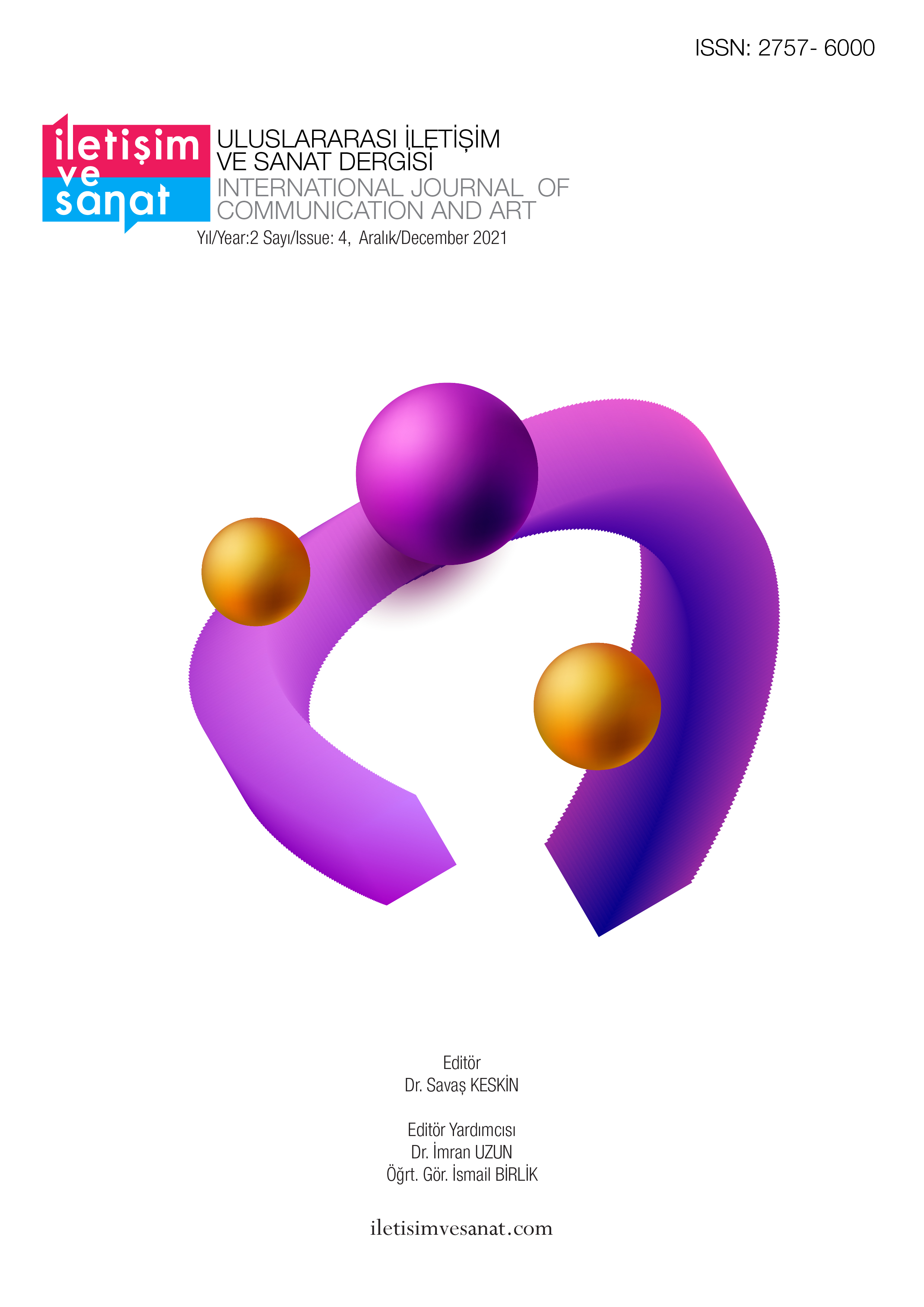Author :
Abstract
21.yy’a kadar Batılının “gelişmemiş” olanı “incelemesi” olarak tanımlanan antropoloji bilimi bugün yeni bir anlam kazanarak farklı kültürlerin karşılıklı biçimde birbirini anlama/anlaşma çabası olarak kabul edilmektedir. Antropolojik yaklaşımın bu değişimi her ne kadar Batılı olan ve olmayan kültürlerin eşit olduğu kabulüne dayansa da antropolojiyi referans alan pek çok alanda durum değişmemiştir. Bu yaygın ön kabulün biçimlendirdiği algı ve yarattığı tahribat uzun süre antropolojiyle ilişkilenen her alanda kendini somut olarak göstermiştir. 20.yy’da çağdaş araştırmacılar ve yenilikçi uygulamacılar aracılığıyla antropolojiyle ilişkilenen tiyatro sanatı da bu süreçleri yaşayarak tartışmalara dâhil olmuştur. Artaud’un açtığı yolu kullanan Grotowski, Barba ve Peter Brook gibi tiyatro uygulama/araştırmacıları tiyatro sanatındaki arayışlarını antropoloji bilimi aracılığıyla gerçekleştirirken kimi zaman bu tuzağa düşmekten kaçamamıştır. Bu bağlamda temsilin krize girdiği her dönemde kaynağına dönerek güçlenme eğilimi antropolojik çalışmaların odağını oluşturmuştur denilebilir. Bu çalışma tiyatronun temsilden deneyime uzanan çizgide antopolojiyle olan ilişkisini tartışmayı bu yolla sosyal bilimlerle sanatın ilişkisini yeniden düşünmeyi amaçlamaktadır. Bu çalışma kültürlerarasılık ve takas kavramları üzerinden Eugenio Barba’nın tiyatro antropolojisi çalışmalarını çağdaş tiyatro düşüncesi üzerinden yorumlamayarak bugünün tiyatrosuna dair bir sonuca varmayı hedefler. Sonuç olarak oyun ve yaşam arasındaki bağı canlı tutma isteği her dönemde tiyatro sanatını kökleriyle yüzleşmeye itmiştir. Kimi dönemlerde doruk noktada gözlemlenen hakikat ve oyun arasındaki bu buluşma kimi dönemlerde de kopmaya yüz tutmuştur. Tiyatro sanatı tekno-kültürel gelişmelere karşı verdiği varoluş savaşında öze dönüşü işlevsel bir araç olarak kullanmayı tercih etmiştir.
Keywords
Abstract
While the science of anthropology, which was defined as the "study" of the "undeveloped" by the Westerner until the 21st century, today gain a new meaning and it is accepted as the effort of different cultures to understand / agree with each other. Although this change of anthropological approach is based on the acceptance that Western and non-Western cultures are equal, the situation has not changed in many other areas that study with anthropology. During a long time this pre-acceptance has concretely manifested itself in every field related to anthropology. The art of theater, which was associated with anthropology through contemporary researchers and innovative practitioners in the 20th century, has also been involved in discussions by experiencing these processes. Theater researchers such as Artaud, Grotowski, Barba and Peter Brook, while carrying out their search in the art of theater through the science of anthropology, could not escape from this trap. When representation crisis occurs it can be said that the tendency of returning to its source for become stronger is focus of anthropological studies. This study aims to debate the relationship between theater and anthropology, from representation to experience, in this way, to rethink the relationship between social sciences and art. This study aims to reach a conclusion about today's theater by not interpreting Eugenio Barba's theatrical anthropology studies through the idea of contemporary theater through the concepts of interculturalism and the barter. As a result, the desire to keep warm the connection between act and life has urged the art of theater to confront its roots in every period. The relationship of the truth and the act, was knitting up in some eras, has also started to break off in some eras. The art of theater has preferred to use the return to essence as a functional tool in its struggle for existence against techno-cultural developments. The relationship between theater and anthropology is this intertwined.
Keywords
- ARTAUD, A. (1993). Tiyatro ve İkizi . İstanbul: Yapı ve Kredi Bankası Yayınları.
- ATAY, T. (2017, Mayıs 14). ‘Etno’ bizleştirmez, ötekileştirir Bilal Bey! Cumhuriyet Gazetesi.
- AUGÉ, M. (2012). Çağdaş Dünyaların Antropolojisi. (H. U. Tanrıöver, Çev.) Ankara: Dipnot Yayınları.
- BARBA, E., & Savarese, N. (2017). Oyuncunun Gizli Sanatı Tiyatro Antropolojisi Sözlüğü. (A. Candan, Çev.) İstanbul: İstanbul Bilgi Üniversitesi Yayınları.
- BİRKİYE, S. K. (2007). Çağdaş Tiyatroda Kültürlerarası Eğilim. Ankara: De Ki yayınları.
- CAN, G. (2005). Levi-Strauss, Althusser Yapısalcılığı Ve Marksizm: Toplumların Tarihsel Gelişim Şeması Ve İdeoloji Üzerine. Gelenek(84).
- COŞKUN, İ. (2008). Sosyoloji, Antropoloji, Şarkıyatçılık ve Öteki. Sosyoloji Dergisi, 11-26.
- ÇELENK, S. (1992). Sokaktaki Tiyatro: Seçenek Tiyatrosunun Kısa Tarihi. İzmir.
- HUİZİNGA, J. (2006). Homo Ludens Oyunun Toplumsal İşlevi Üzerine Bir Deneme. (M. A. Kılıçbay, Çev.) İstanbul: Ayrıntı Yayınları.
- LİCHTE, E. F. (2016). Performatif Estetik. (T. Acil, Çev.) İstanbul: Ayrıntı Yayınları.
- ÖZBUDUN, S., Şafak, B., & Altuntek, S. N. (2016). Antropoloji Kuram ve Kuramcılar. Ankara: dipnot Yayınları.
- RANCİERE, J. (2013). Özgürleşen Seyirci. (E. Şaman, Çev.) İstanbul: Metis Yayınları.
- RYAN, P. R. (1974, Jun). The Living Thatre's Money Tower. The Drama Review, 2(18), s. 9-19.
- SOKULLU, S. (1988). Alternatif Tiyatro Serüveni. Tiyatro Araştırmaları Dergisi, 51-76.
- ÜNLÜ, A. (2006). Türk Tiyatrosunun Antropolojisi. Ankara: Aşina Kitaplar.





